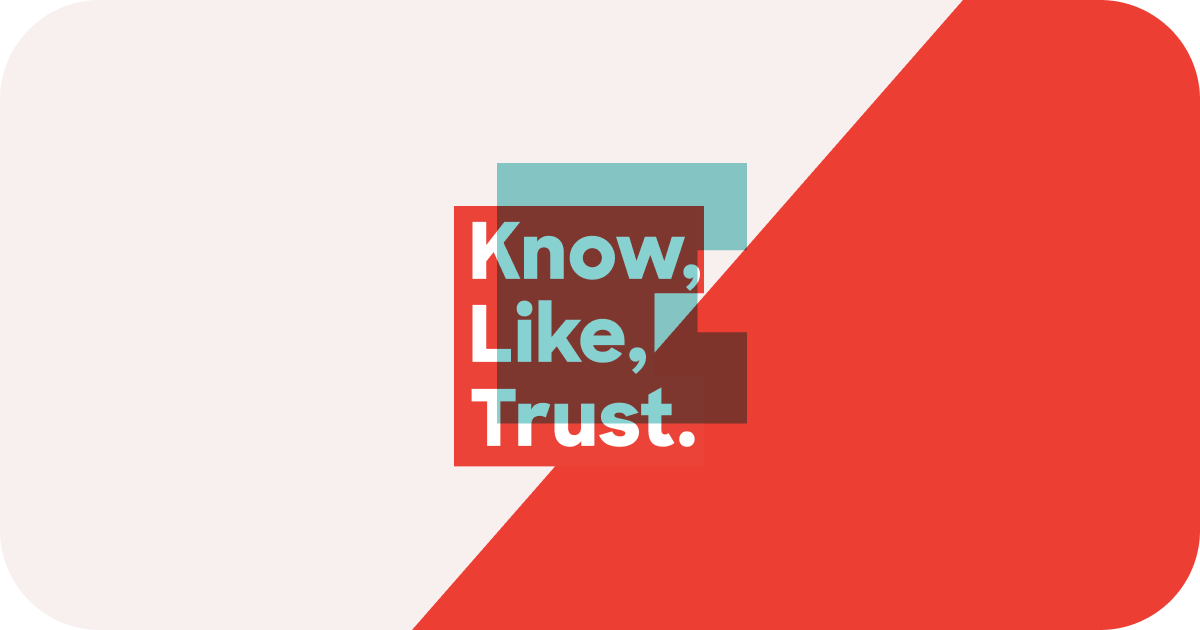It’s a popular saying in business circles, but it holds true: People do business with people they know, like, and trust (especially in sales).
No-one wants to hand their money to some faceless corporation or sign a contract with someone they just met.
Whether we realize it or not, we want to buy from people we can trust. People who do what they say, fulfill their promises, and fix things when they go wrong.
This is as true of people as it is of a company. In their journey, prospective buyers want to know they can trust the company as much as they can trust the individuals they’re dealing with.
That means the trust-building starts from the outset, when they first encounter you at a conference, visit your website, or read one of your emails.
So how can you be a business that people know, like, and trust? Here are a few ways you can earn all of that from your prospects.
How to Build Trust with Customers
1. Know
One great way for people to get to know you is through brand awareness. Sharing information, being active on social media, and creating interesting content can all help people get to know who you are and what you do.
Here are 5 ways you can get your audience to know you:
You can even benefit your entire industry. Share information that addresses the issues you’re facing. Curate industry news as well as outside influences that affect your industry. For example, home builders will want to know about timber production and tariffs, because that will affect home building costs.
Basically, help people get to know you by providing valuable content that will help other people do their jobs and meet their own goals.
2. Like
You can get people to like you by making sure your content is timely and relevant. Share content that people are interested in, even if it’s just a pop culture reference or something that capitalizes on the latest #HashtagTrend.
Your content can’t just be dry and boring. It has to be interesting, captivating, enticing, and even fun. Sure, you want to write informative articles that help boost your search engine rankings. But your marketing needs to be more than dry information, it should make people want to come back for more.
3. Trust
People learn to trust you through your transparency. But that’s as much about telling people what you’re doing and being honest with them as it is actually letting your employees communicate with the public, giving them a voice and a presence, whether it’s on social media or at conferences.
In the early days of social media, online shoe seller Zappos made a name for itself by encouraging all of its employees to be on social media and speak for the company on their behalf. They tweeted, shared photos, wrote blog articles, and communicated with people. They developed online friendships, and those friends became loyal customers.
In short, people trusted Zappos because they had friends who worked there, and they could put a face to a brand. It also didn’t hurt that Zappos focused heavily on customer service, making sure their buying and returns process was as painless as possible, but the trust the employees earned by having a voice was a big reason for its success.
The Final Message: People Buy from People
The most important thing to remember from the original quote is that people want to buy from other people, not a business. A lot of B2B purchasing decisions have more to do with the relationships the buyers have with the salespeople, and less to do with the product or service.
That means your strategy should be to talk to your prospects like people, not like a business. B2B marketing is no different than B2C marketing: you’re speaking to people who have emotions and goals, they want to do well in their job, and their goal is to find the product or service that will help them and their employer.
The best relationship-oriented sellers place their connection with the customer above all other elements of the selling process. How do they develop that trust? By adding value and spending plenty of time with their prospect both before and after the deal is signed.
As the world becomes an increasingly digital landscape, there is a real growing need for trust. Sellers must humanize their sales processes in a world where sales are increasingly being led by Artificial Intelligence and Machine Learning.
But here’s the good news, adding the human touch to meetings and sales-related discussions can prove to be the secret ingredient to fruitful conversations and overcoming sales objections. Bonus: Machines can’t replicate true human interaction.
So instead of making pitches to faceless executives, make an effort to speak to the people. Treat them like real people, not like a business or an account. And don’t forget to let your personality shine through.
That’s when they’ll start to do business with you.


